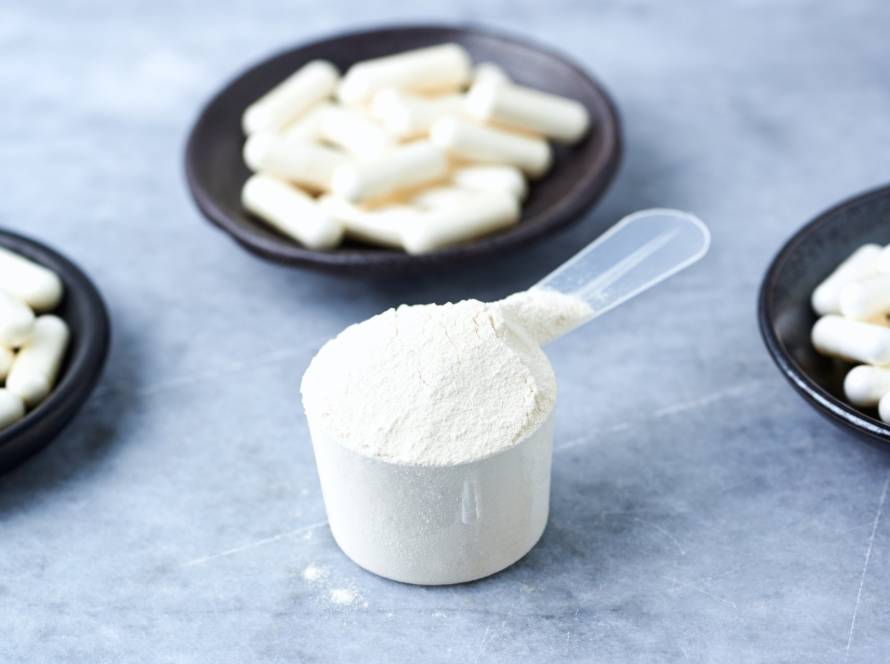NAD+ levels drop as we age and this molecules decline leaves a unique mark on womens health. The benefits of NAD+ for women go way beyond simple cell functions. This vital compound shapes everything from reproductive wellness to how the body ages.
Let’s dive into the science of NAD+ and its impact on womens health. This piece gives a detailed explanation about maintaining the right NAD+ levels to live better and longer. We’ll learn about NAD+ supplements and natural ways to increase your levels.
What is NAD+ and why it matters for women
Nicotinamide adenine dinucleotide (NAD+) is a vital coenzyme that drives cellular redox reactions and orchestrates over 500 biochemical reactions in the body. This molecule powers everything from DNA repair to mitochondrial function and plays a vital role in womens overall health and longevity.
The science behind NAD+ and cellular energy
NAD+ drives cellular energy production through glycolysis and oxidative phosphorylation as a key cofactor in metabolic pathways. The molecule takes part in pathways linked to longevity and cellular stress response. NAD+ exists in two forms, oxidized (NAD+) and reduced (NADH). Their ratio shows the metabolic balance of cells.
Scientists have found that NAD+ levels drop naturally with age in tissues of all types. The decline affects womens reproductive organs by a lot and disrupts fertility and reproductive health.
How NAD+ levels affect women differently than men
Gender makes a big difference in NAD+ metabolism. Womens plasma NAD+/NADH ratios stay higher than mens during adult years. Notwithstanding that, this advantage fades with age and correlates with biological aging markers rather than chronological age.
Studies show women under 50 have lower NAD+ content (31.3 μM) compared to men (34.5 μM).
Key NAD+ dependent enzymes in womens health
NAD+ supports several crucial enzymes that maintain womens health, like sirloins (SIRTs):
- SIRT1 protects oocyte quality by fighting oxidative stress;
- SIRT3 keeps mitochondria working properly in ovaries and low levels lead to abnormal spindle assembly.
NAD+ also works as a substrate for other key enzymes:
- Poly-ADP-ribose polymerases (PARPs): essential for DNA repair;
- CD38: controls NAD+ metabolism in ovaries;
- SARM1: affects mitochondrial function.
These enzymes relationship with NAD+ becomes more important as we age. NAD+ deficiency can disrupt enzyme functions and affect mitochondrial performance and cellular metabolism. These disruptions can lead to age related challenges, especially in womens reproductive health.
NAD+ benefits for metabolic and hormonal health
Recent studies show fascinating links between NAD+ and womens metabolic health. NAD+ regulates cell metabolism and affects hormone balance and metabolic function in multiple ways.
Insulin sensitivity and weight management
Research shows that NAD+ precursor supplements reduce body mass index (BMI) by -0.19 kg/m2. The adiponectin levels rise by 1.59 μg/mL, which shows better metabolic health.
A breakthrough 10 week study of postmenopausal women with prediabetes revealed that nicotinamide mononucleotide (NMN) supplements improved insulin sensitivity. Better muscle insulin signaling and glucose disposal rates led to this improvement.
Adrenal support and stress response
NAD+ helps manage stress responses and supports adrenal function through several ways:
- Cortisol production control;
- Sirtuin activity regulation;
- Support for mitochondria under stress.
Restoring NAD+ levels benefits metabolic health. Studies confirm it improves:
- Heart function;
- Mitochondrial performance;
- ATP production;
- Muscle stem cell quality.
NAD+ precursor supplements show promise for women’s metabolic health. Clinical trials reveal that nicotinamide riboside (NR) helps reduce weight gain, fat mass buildup and age related cholesterol levels. Older women see better results, with improved metabolic rates and physical activity levels.
How NAD+ supports female reproductive system
New research shows how NAD+ plays a vital role in women’s reproductive health. Scientists have found promising ways to preserve fertility and extend reproductive lifespan.
Ovarian function and egg quality
NAD+ plays a key role in maintaining healthy eggs and proper ovarian function. Research shows that NAD+ levels in oocytes naturally drop as women age. This decline affects several important processes:
- DNA repair systems needed for egg development;
- Cell signaling that helps embryos implant;
- Energy production for oocyte growth.
Scientists found that supplements containing NAD+ precursors, especially nicotinamide mononucleotide (NMN), can revive egg quality in older animals. The results showed that MNM treatment brought back fertility rates and boosted ovulation in aging females.
Uterine health and NAD+ pathways
NAD+ affects uterine health through several molecular pathways. Research has shown its influence on:
- Steroid production through SIRT1 and SIRT3 working together;
- Better progesterone release;
- Less oxidative stress in reproductive tissues.
SIRT3, an enzyme that needs NAD+ to work, helps follicle development by controlling steroid producing enzymes. This process helps maintain healthy uterine function and reproduction.
Fertility preservation through NAD+ optimization
Scientists have found new ways to preserve fertility by optimizing NAD+ levels. Their research shows that NAD+ replacement helps restore female fertility by:
- Making egg mitochondria work better;
- Helping chromosomes organize properly;
- Supporting embryo development.
NAD+ effects on brain, skin and immune function
Research shows how NAD+ remarkably affects cognitive function, skin health and immune system regulation. This vital molecule decreases as we age and learning about its effects is crucial for women’s wellbeing.
Cognitive protection and mood regulation
NAD+ serves a fundamental role in brain health through multiple pathways. Studies show that NAD+ administration helps reduce cognitive deficits and supports neuronal survival. The molecule works through several mechanisms:
- Protecting mitochondrial function in brain cells;
- Decreasing harmful reactive oxygen species (ROS);
- Supporting DNA repair mechanisms in neurons.
Clinical studies show that optimal NAD+ levels help improve memory, focus and mental clarity by enhancing neuroplasticity.
Skin aging prevention and collagen production
NAD+ and skin aging share a deep connection at the cellular level. Studies reveal that NAD+ levels in skin decrease by almost 60% between young adulthood and middle age. This decline affects several key processes:
- DNA repair mechanisms;
- Collagen production regulation;
- Cellular energy generation.
Scientists have confirmed that NAD+ improves skin health by activating sirtuins. SIRT6 promotes collagen production genes, while SIRT1 helps inhibit matrix metalloproteinase-1 (MMP-1) that breaks down collagen. Both sirtuins become less active in aging skin, which correlates with lower NAD+ levels.
Immune resilience and inflammation control
NAD+ plays a vital role in regulating immune function and inflammatory responses. Recent studies highlight its ability to:
- Lower inflammatory factors like;
- Support DNA repair in immune cells;
- Boost mitochondrial function in immune cells.
NAD+ supplementation reduces IgE-mediated anaphylactic responses. The molecule also helps produce anti-inflammatory cytokines like IL-4 and IL-10, which decrease neuroinflammation.
Scientists have discovered that NAD+ affects immune cell metabolism through its role as a coenzyme in redox reactions. This interaction becomes more important as women age because NAD+ helps control macrophage function and reduce pro-inflammatory states.
NAD+ supports brain health, maintains skin vitality and strengthens immune function through these various mechanisms. Learning about these pathways is a great way to get insights into how women can optimize their NAD+ levels for better health.
Practical ways to boost NAD+ levels naturally
You can boost your NAD+ levels naturally through lifestyle changes that science supports. Women can optimize their cellular health by understanding these practical approaches.
Dietary sources and lifestyle modifications
Scientists have found that several foods contain NAD+ precursors your cells need. Wild caught fish, lean meats and dairy products give you good amounts of vitamin B3 compounds. Whole grains, mushrooms and green peas are also great sources of NAD+ precursors.
Your diet should include these NAD+ boosting foods:
- Tryptophan rich proteins from poultry and fish;
- Niacin sources like sunflower seeds and legumes:
- Vitamin B rich foods including avocados and leafy greens.
Exercise protocols that increase NAD+
Exercise proves to be a powerful NAD+ booster. Research shows that exercise training increases iNAMPT levels in skeletal muscles by 1.46-fold. Aerobic exercise shows a 75.1% chance of increasing iNAMPT, while resistance training shows a 66.4% probability.
Scientists recommend mixing different types of exercise. The best protocol has:
- 4-5 days of aerobic activity weekly;
- Resistance training sessions;
- Balance exercises for complete benefits.
Athletes who exercise throughout their lives maintain double the iNAMPT content compared to inactive people.
Fasting approaches for women
Intermittent fasting works well to improve NAD+ levels. Research shows that fasting activates metabolic pathways that help cells produce more NAD+. This happens through:
- Your body switches from using glucose to burning fat;
- Sirtuin dependent pathways become active;
- Cells become more resilient to stress.
Our NAD+ levels need a complete approach to stay optimal. Exercise, smart fasting and good nutrition work together to keep cells healthy and help us live longer.
NAD+ supplement options and best practices
NAD+ supplementation knowledge helps women make better choices about their cellular health. Research provides clear guidance on supplementation strategies that work and the best protocols to follow.
Types of NAD+ precursors available
Several NAD+ precursor forms exist with their own benefits:
- Nicotinamide Riboside (NR): research shows this precursor absorbs well and converts to NAD+ reliably. Clinical trials have proven NR increases NAD+ levels safely in various tissues;
- Nicotinamide Mononucleotide (NMN): this precursor sits one step closer to NAD+ in the metabolic pathway and helps slow age related decline. Studies show no major side effects from regular use;
- Reduced forms like NRH and NMNH: these newer options raise NAD+ levels better than traditional forms.
Our body makes less NAD+ as you get older, so we need to take action to maintain it. We can boost our NAD+ levels with simple lifestyle changes. Regular exercise, planned fasting and eating the right foods work well. On top of that, the right supplements can help you keep optimal NAD+ levels when you follow science backed guidelines.
Start with natural methods and watch how your body responds. Healthy NAD+ levels support our current health and long term wellbeing, especially when you go through different life stages.


